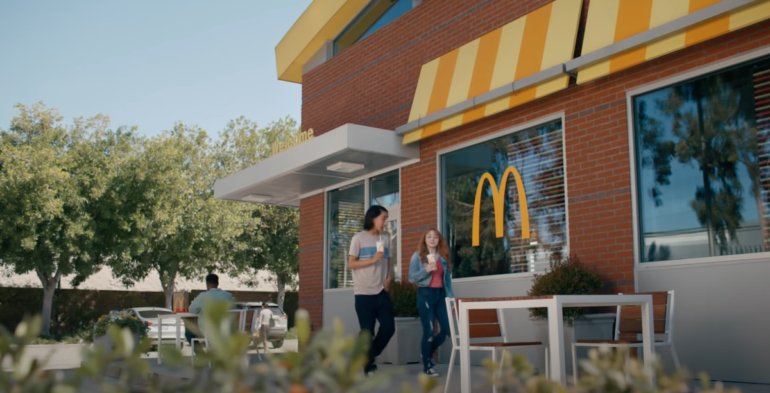They walk along, not wondering whether there was a rounding error on their check.
Screenshot by ZDNet
You drive through and you really don’t care about anything but your fast food fix.
It’s been a fine business model for a long time, and rarely finer than during the pandemic.
Yet, amid McDonald’s increasing reliance on tech-driven drive-thru and delivery, one issue seemed like it might disturb the firmament of success.
McDonald’s was insisting that its franchisees owed it money for the fine technology that was driving business toward ever-higher revenues.
Every six months, franchisees have to pay McDonald’s a fee, you see, for all the latest innovations — such as robot drive-thrus. Suddenly, McDonald’s was claiming that the fee had to paid monthly. Oh, and that the franchisees were already in arrears.
Well, technology is expensive, isn’t it?
Some franchisees insisted McDonald’s didn’t have it right. And, by the way, they said McDonald’s didn’t have the right tech anyway. This was all getting a little fraught.
So much so that just as McDonald’s was experimenting with robot drive-thru ordering in Chicago, franchisees were threatening to sue over the technology fee affair.
Naturally, I eagerly looked out for the lawsuit. I desperately wanted there to be startling revelations about McDonald’s use of technology, especially its legendarily capricious ice-cream machines.
Instead, this little snippet from Bloomberg: “The fast-food giant decided to cut the charges by 62% from the original $68 million communicated to McDonald’s franchisees in December.”
Wait, so this had been rumbling along for more than six months before McDonald’s suddenly conceived it might have its numbers in a twist?
Had McDonald’s been counting its nuggets before they were hatched?
Please forgive me, but I had to chuckle on learning that McDonald’s called in the finely calibrated accountants at KPMG to tell them that maybe, maybe these numbers weren’t quite right. And lo, suddenly both parties were issuing a joint statement saying how happy they were that the issue was settled.
This, though, wasn’t the most entertaining part of this absurd little contretemps.
Not long before the technology fracas was finally put to rest, McDonald’s CEO Chris Kempczinski joshed that this whole thing was really all about a “rounding error.”
No, really. His actual words as presented by Restaurant Business: “In the grand scheme of things, those are rounding errors in the overall health of franchisees.”
So months and months of kvetching about poor technology, silent sulking, and threats of lawsuits all revolved about a rounding error?
Naturally, I want there to be a moral for this story. As the world becomes ever more tech-driven, I don’t want any more conflicts than are necessary. In this case, matters clearly became roundly personal, which suggests relationship errors may have been committed.
Might I suggest that, in future times, McDonald’s sorts out its tech-charging disputes with a bun fight, rather than, well, this?



